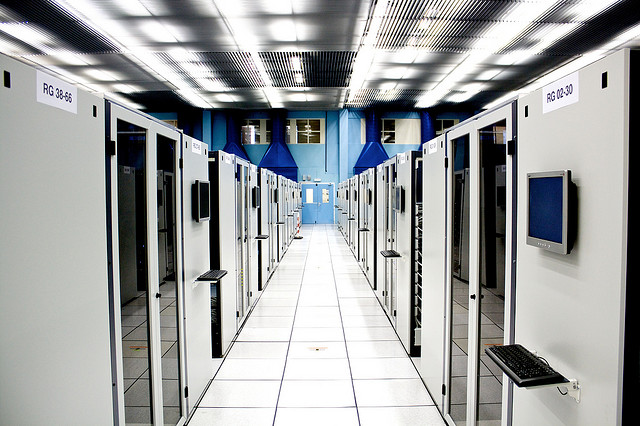
Credit: torkildr
When it comes to technology, many business owners believe that it’s likely to be expensive, whichever way they choose to operate. However, that’s not necessarily the case, and there are several ways you can cut costs when it comes to your IT systems. One of the most effective ways is to colocate, and, whilst this isn’t a very well known practice, it can actually save your company money in the long run. Here, we take you through the ins and outs of colocation and explain why it could be a cost effective decision for your business.
What is Colocation, and how does it work?
Colocation, simply put, is the method of having your servers housed in a professional data centre. The providers of these colocation services often work with a range of different customers, utilising the customers’ own IT systems, yet housing them in their facility. The customer retains ownership of the IT servers, but the colocation provider, along with looking after the day-to-day maintenance and upkeep of the infrastructure.
The colocation facilities have different characteristics to many other buildings – not least the amount of cooling equipment required to keep customers’ servers and IT hardware cool. They also make use of air conditioning systems, but these are much more complex than those in houses or commercial premises.
Colocations are also required to have robust fire protection systems which can incorporate smoke alarms, sprinkler systems and gaseous fire suppression systems to name but a few.
Physical security is also a consideration that ‘colos’ (as they are often known) must take into consideration. Cages and cabinets are usually put in to provide control of who can access customers’ equipment, and can also be supplemented by fingerprint access, key card/code access and other physical security offerings.
Although colocation services can be provided to any country in the world, many businesses prefer to have services physically located in their own country, and this is often because they prefer to be able to visit the facility to check on their own machines and be certain that their data is subject to local privacy laws.
The Benefits of Colocation
Businesses looking into colocation will more than likely be doing so as it is a cost effective yet secure method of storing hardware. However, there are many other benefits that come with choosing colocation, including the below:
Reduction in Downtime
Any IT downtime can really hurt a business, and can ensure customers go elsewhere for their products or services. Whether you’re an up and coming SME or a large multinational, decreasing this risk is paramount. Heavily protected data centres give your hardware the ultimate in risk management, and provide much better protection than local hosts.
Flexibility
As your business grows, so do your IT needs. Housing your hardware in colos enables you to outsource many of your requirements, such as storage, tape backup, firewalls and Internet to a colocation provider, allowing you to scale up and down as your budget and staff requirements change.
Data Sovereignty
As briefly mentioned before, choosing a local colocation provider will ensure that your data is protected by local privacy laws. This is an attractive prospect, particularly to those businesses that handle sensitive information, and those involved in ecommerce, where customers’ personal details are required for purchase.
Of course the biggest lure to choosing colocation services has to be the reduced costs, especially when it comes to maintenance. Australian businesses, in particular tend to find the money needed to not only build, but also maintain their IT hardware systems financially draining. Colocation providers often include within their packages contractor management, utilities and maintenance workers, enabling them to use only what they need.

